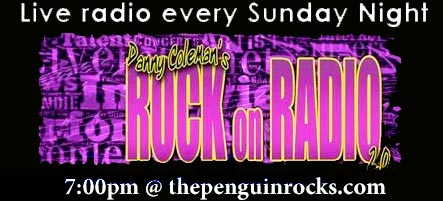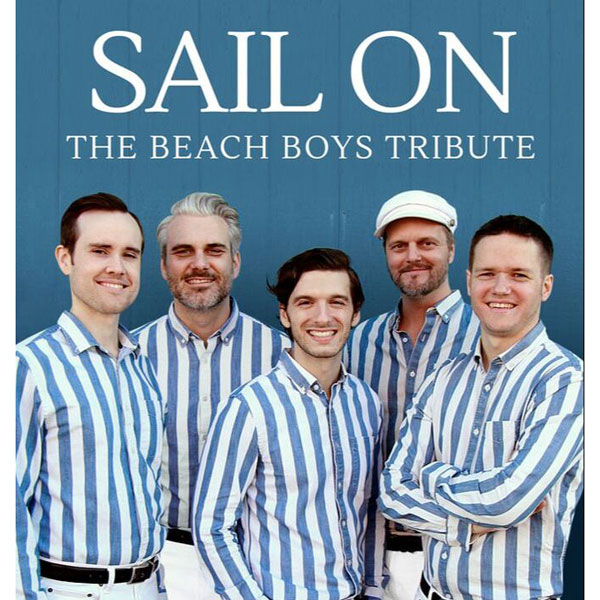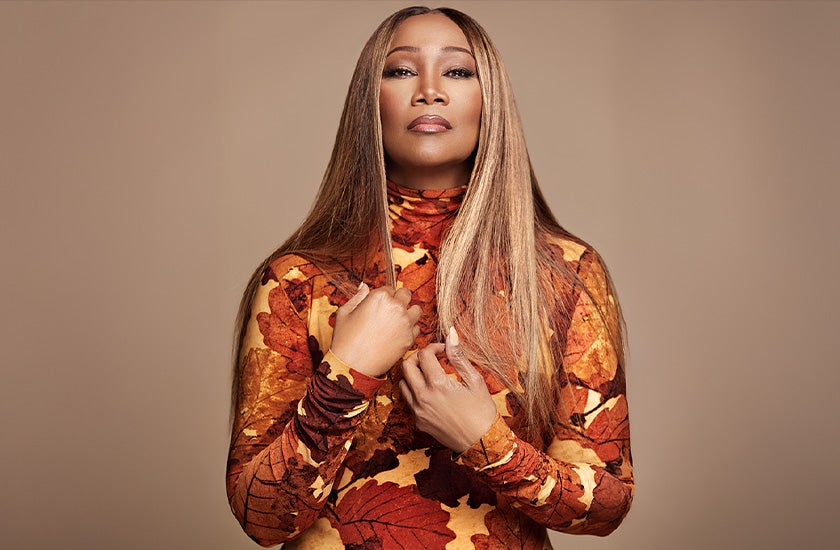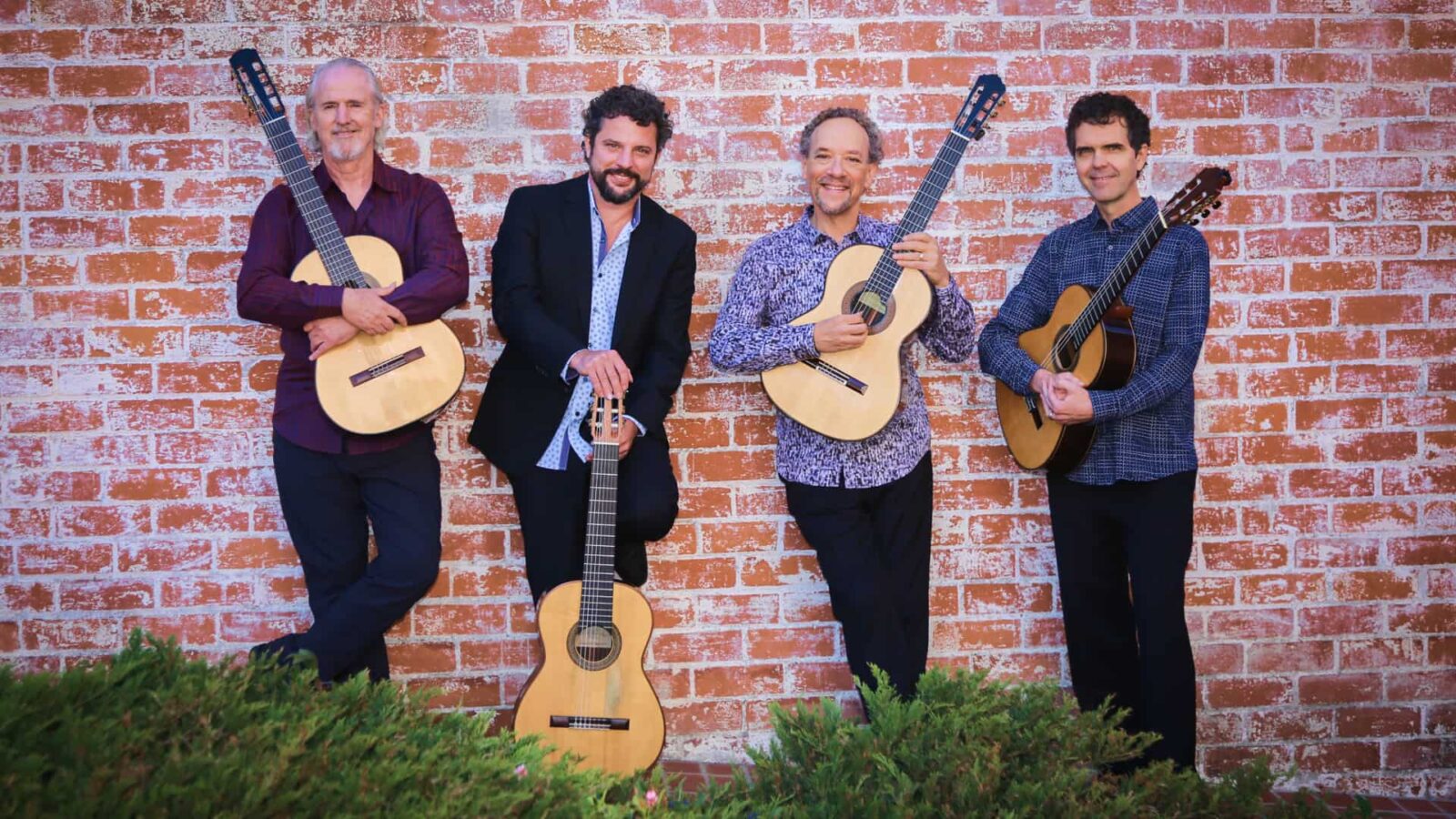That's it for this week! Please continue to support live and original music and until next week....ROCK ON!
This week's event listings
Ace Cafe 15 Market Place New Hope, PA
Thurs. 6 p.m. Bike Night
Sat. 9 a.m. Classic Car Meet (Pre 1950)
Sun. 11 a.m. British Car & Bike Meet
Al's Airport Inn636 Bear Tavern Road West Trenton
(609) 883-5252
Thurs. 5 p.m. Johnathan Savage
Sat. (12 p.m.) Acoustic Brunch w/ Joe Hutchinson (5 p.m.) Jessica DiDonato
Sun. (12 p.m.) Sunday Acoustic Brunch w/ Mike Tusay (7:30 p.m.) DJ Justin Macellaro
Mon. 5 p.m. Bill Thomas
Tues. 7 p.m. Mike & Laura
Wed. 7 p.m. Rick Winow
Aristaeus Brewing2475C Big Oak Road Langhorne, PA
(215) 757-2337
Thurs. 7 p.m. Trivia
Fri. 7 p.m. Chris Nickey
Sat. 7 p.m. Molly Seger
Sun. 3 p.m. Eddie Tamanini
Arts Council of Princeton 102 Witherspoon Street Princeton
(609) 924-8777
Thurs. 6 p.m. ACP BYOB: Charm Bracelets
Sat. 10 a.m. Cyanotype Workshop
Wed. 7 p.m. JAM: Jersey Art Meet-Up
Ashlynn Distillery 32 West Bridge Street Morrisville, PA
Thurs. 6 p.m. Cecil & Carl
Fri. 7 p.m. Keep The Change
Sat. 7 p.m. Sara & Tamer
Sun. 3 p.m. Cecil & Troy
Wed. 6 p.m. Cara Cartney
Bill's Olde Tavern2694 Nottingham Way Hamilton
(609) 586-0192
Thurs. (7 p.m.) The Jenks (10 p.m.) DJ Baynice
Fri. (7 p.m.) Polish Nannies (10 p.m.) DJ Dream
Sat. 7 p.m. 80s Undercover
Mon. 7 p.m. Trivia
Tues. 8 p.m. / Wed. 8 p.m. Karaoke
Ages 21+
Bit-hin' Kitten Brewery58-B East Bridge Street Morrisville, PA
(267) 799-5348
Wed. 7 p.m. Quizzo
Bordentown CityFarnsworth Avenue Bordentown
Fri. 7 p.m. "Frightening Fridays!" Haunted History Tours. $20
Sat. 12 p.m. Bordentown Walking Tours. $20
Bordentown Elks11 Amboy Road Bordentown
(609) 298-2085
Sat. 9 a.m. The Light of Divine Truth Foundation 49th Psychic EXPO
Bordentown Square Tap + Grill233 Farnsworth Avenue Bordentown
(609) 669-6036
Fri. 9 p.m. Todd Bailey
Sat. 8 p.m. Mike and Dylan
Boro Bean 9 East Broad Street Hopewell
(609) 466-6681
Sat. 11 a.m. John Abbott
Bowman's Tavern 1600 River Road New Hope, PA
(215) 862-2972
Thurs. 6:30 p.m. Jill Salkin Trio
Fri. (5:30 p.m.) Bennett Lee (8 p.m.) Bob Egan
Sat. 7 p.m. Dave Dales Trio
Sun. (12 p.m.) Bill Avayou Trio (6 p.m.) Lorenzo
Tues. 6 p.m. Tony Alosi
Wed. 6 p.m. Liz DuFour
Bristol Riverside Theater 2501 Bath Road Bristol, PA
(215) 785-0100
Sat. 6 p.m. Summer Concert Series feat. Legacy
Broken Goblet Brewing2500 State Road Bensalem, PA
(267) 812-5653
Sat. 3 p.m. "Gobletstock X The Eras Tour"
Tues. 6:30 p.m. Dungeons & Dragons Night
Bucks On Bridge25 Bridge Street Lambertville
(609) 483-2615
Fri. 6:30 p.m. Poetry Night
Tues. 5 p.m. Chess Night
Wed. 6 p.m. Trivia
Candlelight Lounge 24 Passaic Street Trenton
(609) 695-9612
Thurs. 6 p.m. Thursday Night Blues Jam. $5
Cazz's Sports Bar 'N' Grille1560 Haines Road Levittown, PA
(267) 580-5469
Fri. 9:30 p.m. Karaoke w/ Paul
City Streets510 Highway 130 South East Windsor
(609) 426-9400
Sat. 9 p.m. Anker
Club Atlantis1858 Street Road Bensalem, PA
(215) 944-1777
Sat. 9 p.m. DJ Robbie Tronco
All Events Ages 21+ and Dress to Impress
Clubhouse at Mountain View (The Patio)
850 Bear Tavern Road Ewing
(609) 538-0808
Fri. 6:30 p.m. Kindred Spirit
Continental Tavern2 North Main Street Yardley, PA
(215) 493-9191
Fri. 6 p.m. Mentalist and Magician Matthew Swanson
Cooper's Riverview 50 Riverview Plaza Trenton
(609) 393-7300
Thurs. 7 p.m. Lovelight
Fri. 5 p.m. Happy Hour (7 p.m.) 80s Undercover / DJ John Rossi
Crossing Vineyard and Winery1853 Wrightstown Road Washington Crossing, PA
(215) 493-6500
Thurs. 7 p.m. Tarot Card Reading & Wine Tasting
Fri. 7:15 p.m. "Summer Wine and Music Series" feat. Sensational Soul Cruisers $15 (advance), Doors open at 5 p.m., Ages 21+
Sat. 2:30 p.m. Aaron Quarterman
Sun. 2 p.m. Rodney Wright
Curran’s Irish Inn1909 Bristol Pike Bensalem, PA
(215) 245-1800
Thurs. 7 p.m. Music Bingo
Mon. 7:30 p.m. Quizzo
Dacey's Pub 215 West Philadelphia Avenue Morrisville, PA
(215) 295-4838
Fri. 6:30 p.m. Acoustic Music Night
Wed. 8 p.m. Quizzo
Dadz Bar and Grill 744 Main Street Lumberton
(609)267-4344
Thurs. 7 p.m. Full Band Open Mic w/ Jimmy Mannix
Fri. (7 p.m.) Nobody's Business (9 p.m.) Dance Party w/ DJ Xavior
Sat. (8 p.m.) Karaoke Dance Party w/ DJ Dubbs (9 p.m.) Dance Party w/ DJ Put It On
Sun. 3 p.m. "What If You Live?" Breast Cancer Fundraiser feat. Night Magic Duo, Wounded Souls
Tues. 7 p.m. Open Mic
Delorenzo's Tomato Pies1707 Langhorne Yardley Road Yardley, PA
(215) 493-1006
Thurs. 5:30 p.m. Frank Pinto & Richie Z
Dharma Bums 4935 River Road New Hope, PA
(215) 663-2867
Thurs. 7 p.m. Dann Pell
Fri. 7 p.m. Hilltop. $10 (advance)
Sat. 7 p.m. Ian Lander Band. $10 (advance)
Wed. 7 p.m. DBums Hootenanny: An Open Mic of Music, Comedy & Spoken Word Hosted by Michael Henry Robert
Dockside Bensalem 3330 Hulmeville Road Bensalem, PA
(267) 520-7184
Sun. 3 p.m. Joe and Krista
Donkeys Place37 Washington Street Mount Holly
(609) 689-5015
Sat. 1 p.m. Wounded Souls
Eddington House Bensalem2813 Hulmeville Road, Bensalem, PA
(215) 639-1220
Fri. 8:30 p.m. The Naturals
Sat. 8:30 p.m. 44 Fridays
Sun. 4 p.m. Cracklin' Diamond
Mon. 5:30 p.m. "Family Fun Night" w/ Amazing Balloon Creations by Kelsi-Joe
Wed. 7 p.m. Music Bingo
Escape Resort, Restaurant & Bar 120 Pheasant Run Road Newtown, PA
Fri. 6 p.m. Colin Brunch Band
Tues. 6 p.m. Karaoke
Flying Pig Tavern & Tap 167 US-Route 130 North Bordentown
(609) 899-7447
Thurs. 8 p.m. DJ entertainment
Sat. 9 p.m. Joe Zook & Blues Deluxe
Tues. 9 p.m. Karaoke
Wed. 8 p.m. Trivia
Forsgate Country Club 375 Forsgate Drive Monroe
(732) 521-0700
Sat. 12:30 p.m. Music Poolside w/ Jeff Fernandes
Founding Father's Sports Bar & Grill 2900 Street Road Bensalem, PA
(215) 923-1100
Fri. 6 p.m. Bob Pantano Dance Party w/ DJ Joe Castro
Friendly's 1031 Washington Boulevard Robbinsville
(609) 426-9203
Thurs. 5 p.m. Cruise Night
Wed. 6 p.m. Open Mic Night Hosted by Kevin McGowan and/or Gino Formaroli (Sign-ups begin at 5:30 p.m.)
German American Society 215 Uncle Pete's Road Hamilton
(609) 585-5200
Sat. 10 a.m. 2024 Euro-American Auto & Motorcycle Show
Gleason's Bar6700 Mill Creek Road Levittown, PA
(215) 943-4781
Thurs. (7 p.m.) Music Bingo / “Ladies Night” Hosted by Best Choice Productions (9:30 p.m.) Karaoke
Fri. (6 p.m.) "Happy Hour" (8 p.m.) Old School
Sat. (12 p.m.) "Taylor Swift" Music Bingo Brunch (8 p.m.) Bambu Weasels
Sun. 4 p.m. Cara Cartney
Tues. 6:30 p.m. Trivia Night Hosted by Best Choice Productions
Green Parrot Restaurant Pub, & Patio240 North Sycamore Street Newtown Township, PA
(215) 504-7277
Fri. 8 p.m. Tailspin
Sat. 8 p.m. Derek Petaccio & Christian Alexander
Grounds For Sculpture80 Sculptors way Hamilton
(609) 586-0616
Thurs. 5:30 p.m. "Swirl:" An Evening of Art and Wine
Grover's Mill Coffee House Princeton-Hightstown Road Princeton Junction
(609) 716-8771
Thurs. 6 p.m. Open Mic Hosted by Wade Prestridge
Hamilatte Cafe1971 Route 33 Hamilton
Sat. 6:30 p.m. Acoustic Saturdays
Hamilton Tap & Grill557 US Route 130 North Hamilton
(609) 905-0925
Thurs. 6:30 p.m. Music Bingo w/ DJ Nebbs
Sat. 8 p.m. Karaoke
Wed. 7 p.m. Trivia
Hamilton Township Public Library 1 Justice Samuel A. Alito Jr. Way Hamilton
(609) 581-4060
Sun. 8 a.m. Flea Market
Havana New Hope105 S. Main Street New Hope, PA.
(215) 862-9897
Thurs. 7:30 p.m. Pat Benetar Tribute w/ "All Fired Up" $25
Fri. ( 8 p.m.) "Live Wire" AC/DC Tribute. $35 (11 p.m. ) DJ Dance Party
Sat. 9:30 p.m. DJ Summer Dance Party
Mon. 9 p.m. Karaoke w/ DJ Steve
Tues. 7 p.m. Jillian Ashcroft Jazz Quartet
Wed. 7 p.m. Jumper Duo
Hopewell Valley Golf Club114 Pennington-Hopewell Road Hopewell
(609) 737-1199
Thurs. 6:30 p.m. Trivia Hosted by jack Furlong
Tues. 5 p.m. "9 and Dine" feat. Jack Furlong Jazz Orchestra. $50 (Includes 9 holes of golf/dinner. $30 dinner only)
Hopewell Valley Vineyards46 Yard Avenue Pennington
(609) 737-4465
Fri. 4 p.m. "Music & Merlot" feat. (5:30 p.m.) Robert Ruffis
Sat. (9 a.m.) WWFM Fransisco (1 p.m.) The Jackalopes (5:30 p.m.) "Music & Merlot" feat. Bad Hombres
Sun. 2:30 p.m. "Jazzy Sundays" feat. Blue Jersey Band
Hurricane Jacks Bar and Grill7759 New Falls Road Levittown, PA
(267) 914-4517
Thurs. 7:30 p.m. Music Bingo w/ DJ John W.
Fri. (6 p.m.) Bill Shannon (9 p.m.) Karaoke w/ DJ Beenice
Sat. 7 p.m. Casey Welborne
Tues. 8 p.m. Acoustic Tuesday w/ Frank Weedon
Wed. 7 p.m. Open Mic w/ Laura Fiocco
Il Portico Restorante Italiano 273 West Route 130 South Burlington
(609) 239-1000
Thurs. 7 p.m. Jazz Night
Fri. / Sat. 7 p.m. Live Music w/ Tony O
Irish Rover Station House 1033 South Bellevue Avenue Langhorne, PA
(215) 970-5412
Wed. 7 p.m. Quizzo Night
Iron Plow Vineyards26750 Mount Pleasant Road Columbus
(732) 306-9111
Fri. 6:30 p.m. Melissa Ann
Sat. 6:30 p.m. Jerry Monk
Sun. 2 p.m. Bud & Gerard Belviso
Ivy Tavern3108 S. Broad Street, Hamilton
(609) 888-1435
Thurs. 8:30 p.m. Karaoke
All shows 21+
John & Peter's96 S. Main Street New Hope, Pa
(215) 862-5981
Thurs. 8:30 p.m. Moxi Mayhem, Lo-Fi MILF, Loretta Allen Band, Bubba Heard Mol
Sat. 8 p.m. Alpha Rabbit, Joy On Fire, Heavy Flow,
Mon. 9 p.m. Open Mic Comedy Night w/ Mike Dialto (Sign-ups start at 8 p.m.)
Wed. 9 p.m. The Invitational
All shows 21+
Killarney's Publick House1644 Whitehorse-Mercerville Road Hamilton
(609) 586-1166
Thurs. (5:30 p.m.) Ken Dubman (6 p.m.) Don Julio Tasting (10 p.m.) DJ Mike Perez
Fri. (5:30 p.m.) Skyline (10 p.m.) DJ Jimmy G
Sat. (10 a.m.) Brunch feat. (12 p.m.) "Yappy" Hour (5:30 p.m.) Ant Cannuli (10 p.m.) DJ Dom
Sun. (10 a.m.) "Sunday Funday" Brunch feat. (11 a.m.) Bob Banka
Laurita Winery 85 Archertown Road New Egypt
(609) 752-0200
Thurs. (6 p.m.) Sip, Snip & a Sunset (Create your own flower bouquet). $40 (6:30 p.m.) Laurita Junior Idol Semi-Finals
Fri. (6 p.m.) Sip, Snip & a Sunset (Create your own flower bouquet). $40 (7:30 p.m.) Comedy Night feat. Pat House, Tim Grill, Eddie Gallagher. $25, Seating starts at 7 p.m.
Sat. 6 p.m. Sip, Snip & a Sunset (Create your own flower bouquet). $40 / Seafood Boil. $36
Lawrenceville Main Street 17 Phillips Avenue Lawrenceville
(609) 219-9300
Thurs. 6 p.m. "Music In The Park" feat. Califon Hellbenders (Weeden Park FREE admission)
Library Company of Burlington23 West Union Street Burlington
(609) 3861273
Fri. 6:30 p.m. Open Mic Night
Lillipies Bakery30 North Harrison Street Princeton
(609) 423-2100
Sat. 10 a.m. Storytime with Jeff
Sun. 2 p.m. "Lillipalooza" feat. 23 Skiddoo, Burglars, The Only Ghost In Town
Logan Inn 10 West Ferry Street New Hope, PA
(215) 862-2300
Fri. 7 p.m. Keith Franklin Quartet
Sat. 7 p.m. Lambertville Jazz
Sun. 11:30 a.m. Omeed Nyman
Wed. 6 p.m. Tom Reyes
Magikava87a South Main Street New Hope, PA
(215) 862-2739
Thurs. 6 p.m. Astrology Readings by Riss Cottrill
Mon. 6 p.m. Magik "Art Mondays"
Wed. 6:30 p.m. Open Mic Night
Makefield Highlands Golf Club1418 Woodside Road Yardley, PA
(215) 321-7000
Fri. 6 p.m. Bill Thomas
MarketFair3535 U.S Highway 1 Princeton (Center Courtyard)
(609) 452-7777
Tues. 10 a.m. Weekly Summer Kids Club
McStews Irish Sports Pub5316 New Falls Road Levittown, PA
(215) 949-9570
Sat. 9 p.m. Paula & Sam's DJ Dance Party
Tues. 7:30 p.m. Trivia Night
Mercer County Park (Boathouse at Mercer Lake)
334 South Post Road West Windsor
(866) 683-3586
Thurs. 5 p.m. Billy Joel Tribute w/ "You May Be Right"
Music Mountain Theater1483 Route 179 Lambertville
(609)397-3337
Fri. 8 p.m. "Anything Goes"
Sat. 3 p.m./ 8 p.m. "Anything Goes"
Sun. 3 p.m. "Anything Goes"
Naked Brewing Company 212 Mill Street Bristol, PA
(267) 544-7129
Thurs.6:30 p.m. Dana Collins Project
Fri. 7 p.m. WURL
Sat. 7 p.m. Righteous Jolly & Friends
Tues. 7 p.m. Trivia
Neshaminy Creek Brewing Company 909 Ray Avenue Croydon, PA
(215) 458-7081
Thurs. 7 p.m. Trivia Night
Fri. 7 p.m. The Derelict Franchise
Wed. 6:30 p.m. Cornhole League
New Egypt Flea Market Village 933 Monmouth County Road Cream Ridge
(609) 758-2082
Sun. 8 a.m. Flea Market
Wed. 8 a.m. Flea Market
New Hope Winery / Tavern 6123 Lower York Road New Hope, PA
(215) 794-2331
Fri. 8 p.m. An Evening w/ Paula Cole
Sat. 1 p.m. Bill Ihling
Newtown Brewing Company103 Penns Trail Newtown, PA
(215) 944-8609
Thurs. 7:30 p.m. "Gilmore Girls" Trivia
Fri. 6 p.m. Fly On The Wall
Sat. (3 p.m.) Magic by Jared (6 p.m.) John Thomas
Wed. 4 p.m. Open Mic Night
Nick's Roast Beef4501 Woodhaven Road West Philadelphia, PA
(215) 637-515
Thurs. 7 p.m. Trivia
Fri. 8 p.m. Dueling Pianos
Sat. 8 p.m. Plush "Decades" Show
Wed. 7 p.m. Karaoke
NJWeedman's Dispensary322 East State Street Trenton
(609) 437-0898
Thurs. 8 p.m. Karaoke
Nomad Distilling Company20 South Main Street New Hope, PA
Sun. 10 a.m. Brunch
Nottingham Tavern 9 Mercer Street Hamilton Square
(609) 587-6623
Thur. (7 p.m.) Rock On Radio Happy Hour Hosted by Danny Coleman w/ Music by Anthony Cannuli (9:30 pm.) Karaoke w/ Super Dave Curtis
Fri. 9:30 p.m. Karaoke w/ Super Dave Curtis
Sat. 9:30 p.m. Asylum Choir
Mon. 7 p.m. Music Bingo
Ages 21+
O'Fowley's Tavern & Grill 200 State Road Croydon, PA
(215) 785-6998
Mon. 7 p.m. Music Bingo Hosted by Best Choice Productions w/ DJ John S
Tues. 7 p.m. Quizzo
Old Hights Brewing 123 West Ward Street Hightstown
(609) 469-5976
Thurs. 5 p.m. Vinyl Night
Sat. 5 p.m. Shotgun Curly
Wed. 6:30 p.m. Trivia Night
Old Town Pub135 Farnsworth Avenue Bordentown
(609) 291-9232
Thurs. 7 p.m. Quizzoholics Trivia
Fri. 9 p.m. Radio Fiction
Sat. 9 p.m. Garey Rosenthal Duo
Sun. 10 a.m. Brunch
Palmer Square 40 Nassau Street Princeton
Thurs. 6 p.m. Dueling Pianos
Fri. (7 p.m.) Anker (Kiosk) (8:30 p.m.) Movie Nights On The Green: "Honey I Shrunk The Kids"
Sat. 12 p.m. Summer Music Series feat. The Cloudburst Band
Pasquale's Sports Bar 9078 Mill Creek Road Levittown, PA
(267) 202-6268
Tues. 7 p.m. Music Bingo
Wed. 7 p.m. Karaoke
Patriots Crossing 1339 River Road Titusville
(609) 737-2780
Thurs. 8 p.m. Ladies Night
Wed. 7 p.m. "Quizzo"
Pete's Steak House 523 Whitehorse Avenue Hamilton
(609) 585-8008
Fri. 9:30 p.m. Beetle Pie
Princeton Battlefield500 Mercer Road Princeton
Sun. 1 p.m. Battlefield Tour & Clarke House
Princeton Country Club1-Wheeler Way West Windsor
(609) 452-9382
Thurs. 6 p.m. Karaoke Night w/ Live DJ
Fri. 5 p.m. Happy Hour
Sun. 11 a.m. Jazz Brunch
Princeton Makes 301 North Harrison Street Princeton
Thurs. 6 p.m. "Summer Concert Series" feat. The Rangers Nouveau
Puss N Boots Tavern942 Trenton Road Fairless Hills, PA
Fri. 8 p.m. Karaoke
Tues. 7 p.m. Trivia
Ristorante LUCCA & Piano Lounge 144 US Route 130 Bordentown
(609) 262-0110
Thurs. 8 p.m. Jazz Night
River House at Odette’s 274 South Rive Road New Hope, PA
(215) 682-2022
Thurs. 7 p.m. Cara Cartney
Fri. 7 p.m. Andy Prescott
Sat. 7 p.m. Bob Egan
Wed. 7 p.m. Megan Knight
Rossi's Bar & Grill2110 Whitehorse-Mercerville Road Hamilton
(609) 890-2004
Thurs. 5:30 p.m. Ernie White
Sat. 11 a.m. Brunch
Sun. 11 a.m. Brunch
Tues. 7 p.m. Quizzoholics
Salon 33 794 Alexander Road Princeton
Fri. 7 p.m. Sustainable Jazz w/ Steve Hiltner and Phil Orr
Sat. 7 p.m. "Poise Meets Swing"
Sun. 7 p.m. "FOLK" Every Song, a Short Story...a Multi-media Show
Sandy's Beef & Ale2028 E. Old Lincoln Highway Langhorne, PA
(2670 852-2333
Thurs. 8 p.m. Quizzo
Mon. 7 p.m. Music Bingo
Second Sin Brewing Company1500 Grundy Lane Bristol, P
(267) 812-5251
Thurs. 7 p.m. Trivia
Shady Brook Farm 931 Stony Hill Road Yardley, PA
(215) 968-1670
Thurs: 6 p.m. Plush Duo
Fri. 6:30 p.m. "UnWINEd" Concert feat. The Zings. $12 (advance/online, $15 at door), doors open at 5:30 p.m.
Sat. "Party On The Patio" feat. (2 p.m.) Lisa Bouchelle (6:30 p.m.) Dockside
Sun. "Party On The Patio" feat. 2 p.m. Mike Brill
Slim's Irish Pub 2195 Galloway Road Bensalem, PA
(267) 332-0047
Mon. 6 p.m. Open Mic Night Hosted by Cecil
Wed. 6 p.m. Karaoke Contest
Small World Coffee 14 Witherspoon Street Princeton
(609) 924-4377 x2
Sat. 7 p.m. SonOfDov
Sparky World-Famous Beer Garden4333 New Falls Road Levittown, PA
(215) 943-2321
Thurs. 9 p.m. Karaoke w/ DJ Dana
Sat. 8 p.m. Old School Saints
Sun. 9 p.m. Open Mic Hosted by Cara Cartney
Mon. 9 p.m. Game Night Hosted by Kid Dalton
Tues. 7 p.m. Johnny Betz
Wed. 8 p.m. Chris & Colin
Starving Artist Cafe18 Bridge Street Stockton
Fri. 6 p.m. Chris Chadwick
Steam Pub 606 2nd Street Pike Southampton, PA
Fri. 10 p.m. DJ Quigs
1675 Spirits 2685 Bristol Pike Bensalem, PA
(215) 645-1445
Sat. 6 p.m. Those Guys
Tara's Tavern 1 Cookstown-New Egypt Road, Wrightstown
(609) 286-2300
Sat. 8:30 p.m. Ken Dubman
Tavern On The Lake 101 Main Street Hightstown
(609) 426-9345
Fri. 9 p.m. Complicated Matter
Sat. 8 p.m. Original Music Night w/ Jump Back
Tues. 6 p.m. Trivia
Wed. 7 p.m. Karaoke
Temperance House5 South State Street Newtown, PA
(215) 944-8050
Thurs. 7 p.m. Steve Guyger and Filthy Rich
Mon. 7 p.m. Trivia Hosted by Neville Esquire
Tues. 7 p.m. Beginner Line Dance Lessons w/ Jeremy Line Dance. $40/4 Weeks
Wed. 7 p.m. Open Mic Night w/ Cara Cartney
Terhune Orchards 330 Cold Soil Road Princeton
(609) 924-2310
Sat. 1 p.m. "Blueberry Bash"
Sun. 1 p.m. "Blueberry Bash"
TGI Fridays 780 Route 130 South Hamilton
(609) 581-6910
Sun. 9 p.m. Karaoke w/ DJ Burn
TGI Fridays2703 Mount Holly Road Suite 3 Washington Twp.
(609) 239-486
Thurs. 7 p.m. Trivia
TGI Fridays3535 U.S. Route 1 North #275 Princeton
(609) 520-0378
Thurs. 8 p.m. Trivia Night
The Birdhouse Center For The Arts7 North Main Street Lambertville
(215) 681-4660
Tues. 7:30 p.m. NJNO the "not just nyckelharpa orchestra" Community Orchestra
The Buck Hotel 1200 Buck Road Feasterville, PA
(215) 396-2002
Thurs. 7 p.m. Kirko
Fri. 8 p.m. Love Junk
Sat. (11 a.m.) Brunch (9 p.m.) Mostly Harmless
Tues. 7 p.m. Danny Lynch
The Cool Cricket216 Burlington Street Fieldsboro
(609) 291-9110
Fri. 9 p.m. Karaoke w/ Dave Curtis
Sat. 9 p.m. El Ka Bong
The Dubliner34 North Main Street New Hope, PA
(215) 693-1816
Fri. 7 p.m. Na Bodach`
Sun. 3 p.m. "Traditional Irish Session"
The Federal Twist Vineyard 8 Federal Twist Road Stockton
(609) 773-6066
Sat. 12 p.m. Inflexables. $5 (Ages 20 and under FREE)
Sun. 12 p.m. Strange Brew Crew. $5 (Ages 20 and under FREE)
The Five Four Bar & Grill8919 New Falls Road Levittown, PA
(215) 547-5525
Thurs. 8 p.m. Karaoke w/ Paula and Sam
Fri. 9 p.m. Asylum Choir
Sat. 9 p.m. Big Whiskey
Tues. 7 p.m. Music Bingo w/ Jonathan Appel
The HOB Tavern 146 Second Street Bordentown
(609) 291-7020
Fri. 8 p.m. The Successful Failures
The Ivy Inn248 Nassau Street Princeton
(609) 921-8555
Thurs. (7 p.m.) Bingo (10 p.m.) Karaoke w/ Trey Brown
Fri. 9:30 p.m. DJ Fatha Ramzee
Sat. 9:30 p.m. DJ Ty
Tues. 7 p.m. Quizzo w/ Bob E Luv
Wed. 10 p.m. Karaoke w/ Trey Brown
The Morrisville Tavern 376 West Trenton Avenue Morrisville, PA
(215) 295-5310
Thurs. 7 p.m. Trivia
Fri. 8 p.m. Molly Seger
Sat. 8 p.m. Finster
Mon. 8 p.m. Karaoke
Tues. 7 p.m. Music Bingo
Wed. 7 p.m. Trivia Night
The Penguin Rocks (24 Hour On-Demand Music/Radio)
www.thepenguinrocks.com Mon. - Fri. "Radio Jersey" Hosted by Lee Mrowicki
Sun. - Sat. "Classic Jersey" Hosted by Gary Wien
Sun. - Sat. "Beyond The Palace" Hosted by Lee Mrowicki
Sun. - Sat. "Danny Coleman's Rock On Radio" feat. Toronzo Cannon, Charlie Wooton, Sammy Lee of Red Reign, Danny Saber
Sun. - Sat. "From The Basement" Hosted by Mike Marrone
Sun. - Sat. "Deuce Radio" Hosted by Matt Barker
Sun. - Sat. "Altrok Radio" Hosted by Sean Carolan
Sun. - Sat. "Lighty's Corner" Hosted by Gary Wien
Sun. - Sat. "The Troubador Show" Hosted by John Godfrey
The Roost181 Rte. 539 Cream Ridge
(609) 208-0050
Thurs. 6:30 p.m. DC Duo
Fri. 8 p.m. ArHouse
Sat. 8 p.m. Even Odds
The Union Firehouse18 Washington Street Mount Holly
(609) 288-6491
Fri. 8 p.m. Butchering Cassidy, Ray Sheehan & Midnight Players, Smother Nature. Doors open at 7 p.m.
The Union House 19 East Union Street Burlington
(609) 531-6077
Thurs. 7 p.m. Trivia
Fri. 8 p.m. Privileged Few
Sat. (10 a.m.) Brunch (8 p.m.) Three Question Marks
Sun. 12 p.m. Brunch
Tindall Road Brewing Co.102 Farnsworth Avenue Bordentown
(609) 526-8651
Wed. (6 p.m.) Books & Beer (7 p.m.) Li-Brewery Trivia
Tir Na Nog 1324 Hamilton Avenue Trenton
(609) 392-2554
Sun. 3 p.m. "Irish Sessions"
Tues. 8 p.m. Open Mic Hosted by Jerry & John Monk
All Shows 21+
Trenton Social449 South Broad Street Trenton
(609) 989-7777
Thurs. 5 p.m. "Happy Hour Throwback Thursday
Sat. 9 p.m. Live Music (TBA)
Mon. 6 p.m. "Monday Night Karaoke" Hosted by Sweets
Triumph Brewing Company (New Hope, Pa. Location)
400 Union Square New Hope, Pa.
(215) 862-8300
Fri. 7 p.m. Kevin Hill & Secret Sound
Vault Brewing Company10 South Main Street Yardley, PA
(267) 573-4291
Thurs. 6 p.m. John Brennan
Fri. 7 p.m. Tom Trovas Duo
Sat. 7 p.m. Suzette Ortiz and Her Latin Ensemble
Village Idiot Brewing Company42 High Street Mount Holly
(609) 975-9270
Thurs. 7 p.m. Trivia
Wildflowers Inn2572 Pennington Road Pennington
(609) 773-239
Thurs. 6 p.m. Rob Silvers
Wildflowers Too255 Route 156 Yardville
(609) 585-5483
Wed. 7 p.m. Poker Night
Woodlin Lodge 3019 Park Street Bordentown
(609) 298-9849
Fri. 8 p.m. Fridays On Park Street
Working Dog Winery610 Windsor Perrineville Road Hightstown
(609) 371-6000
Thurs. 4:30 p.m. Justin Love
Sat. 1 p.m. JerseySureCats
Sun. 1 p.m. Rob Silvers
WWFM 89.1 FM HD2 RadioMCCC Old Trenton Road West Windsor
Jazzon2.org
Mon. 7 a.m./7 p.m. "Danny Coleman's Got The Blues"

Danny Coleman is a veteran musician and writer from central New Jersey. He hosts a weekly radio program entitled 'Rock On Radio' airing Sunday evenings at 7:00pm EST on ThePenguinRocks.com where he features indie/original bands and solo artists.
EVENT PREVIEWS
bergenPAC presents Gospel Music Legend Yolanda Adams
Mon, January 29, 2026
People Get Ready: A "Blues & Rock 'N' Roll Summit" is coming to Lizzie Rose Music Room featuring Glenn Alexander & Shadowland plus James JB Barnes & The JB Blues Band
Mon, January 30, 2026
Prudential Center presents Rascal Flatts with Openers Lauren Alaina and Chris Lane
Mon, January 30, 2026
Algonquin Arts Theatre presents Magical Mystery Doors
Mon, January 31, 2026
State Theatre New Jersey presents Freestyle Flashback Concert 2026 on January 31st
Mon, January 31, 2026
The Levoy Theatre presents Dead On Live
Mon, January 31, 2026
Kean Department of Music presents Los Angeles Guitar Quartet on Saturday
Mon, January 31, 2026
Black History Month Celebration in Madison: Louis Armstrong's Early Life and Music
Mon, February 1, 2026
New Jersey Youth Chorus Presents Winter Concert Featuring Young Talent on February 1st
Mon, February 1, 2026
SOPAC presents An Evening with Melba Moore
Mon, February 1, 2026
FEATURED EVENTS
To narrow results by date range, categories,
or region of New Jersey
click here for our advanced search.
To narrow results by date range, categories,
or region of New Jersey
click here for our advanced search.













